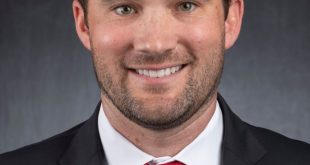The Office of Gov. Brian Kemp held a General Assembly on Jan. 10 where multiple bills and legislation addressing regulation of K-12 education were proposed, most of which give power to parents when it comes to a child’s education.
According to appenmedia.com, some of the bills included a banning of race-based curriculum, complaint resolution policies focusing on parent concerns about books in school libraries and more.
On Feb. 1, Gov. Kemp’s office published a press release announcing the legislation proposal of a Parents’ Bill of Rights. The proposed legislation would allow parents to request curriculum their children are learning in the classroom from the principal of the child’s school or from the county superintendent.
“Parents have the primary responsibility for educating their children,” said Rep. Josh Bonner, one of the floor leaders who proposed the legislation. “This legislation will provide needed transparency and access for parents as they partner with teachers to achieve the best possible outcomes.”
It doesn’t sound like a bad idea. At least, not in theory.
Unless a parent has a professional concept of current education curriculums and an outlook on society that focuses on the present and future, they should not be able to limit what is taught in schools by opinion alone.
It is a parent’s job to teach their child how to be decent, self-sustaining humans. Children learn good graces, beliefs and more from their parents.
This does not make a parent an educator, especially not in the academic sense. It makes them a parent.
“At a time when our nation is more divided than ever, we’re leading the fight to ensure parents do not have any barriers which prevent them from playing an active role in their child’s education,” said Governor Kemp in the press release.
They shouldn’t have barriers. Parents and teachers should be able to communicate about what is being taught in the classroom.
However, by letting parents decide what their child is taught, it opens a very messy can of worms.
By limiting a child’s education, they are immediately being sheltered against vital information. They are being kept from the past, which is the paving stone for the future.
Those who forget the past are doomed to repeat it.
What parents need to realize is that their children will grow up. They will one day leave the umbrella of innocence and enter the real world. Limiting what they learn leads to false narratives, ultimately limiting a child’s growth in self-awareness and identity.
This editorial reflects the general opinion of The Spectator staff.
 The Spectator The independent student newspaper of Valdosta State University
The Spectator The independent student newspaper of Valdosta State University






